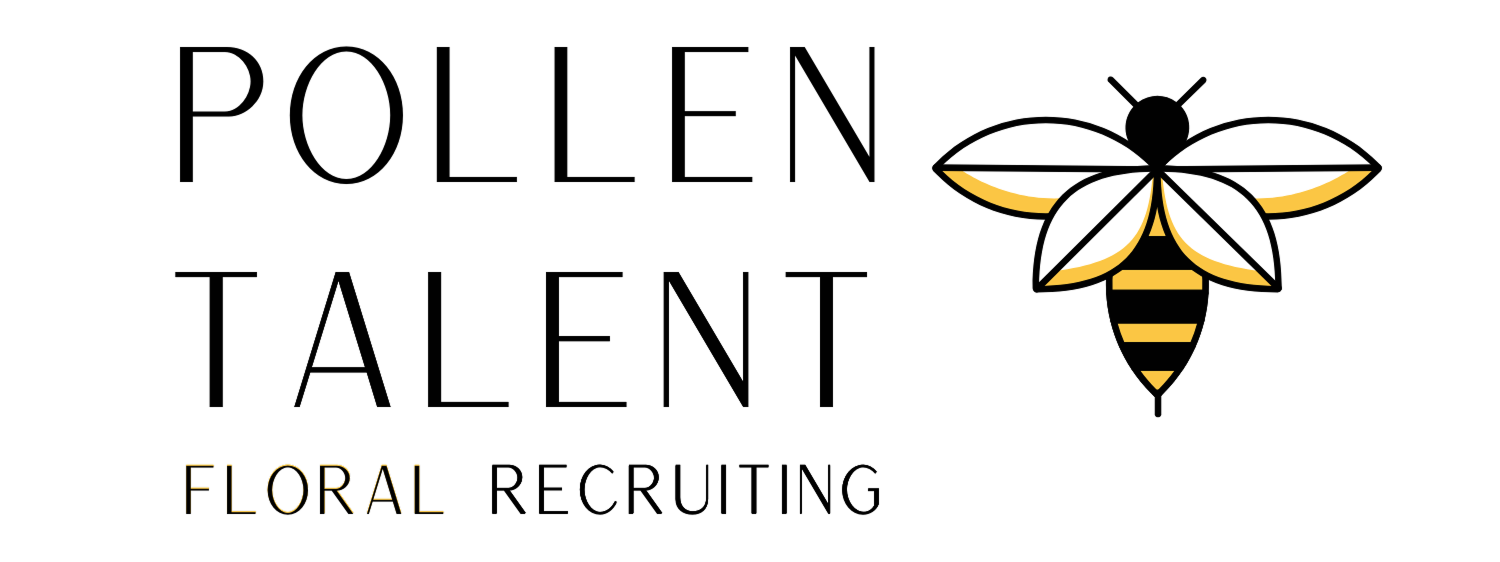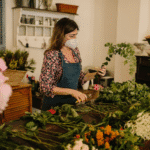Do you have a floral business and need to improve your human resources recruitment process? You’ve come to the right place! Hiring the right talent is crucial for the success and growth of any business, and the floral industry is no exception.
This guide will walk you through the essential steps and strategies to streamline your HR recruitment in the floral industry. Whether you have a flower farm, a wholesale floral supplier, or a floral design company, attracting and retaining skilled individuals is key to maintaining a competitive edge. So, let’s dive in and discover the secrets to successful HR recruitment in the floral industry!
1. Establish the sources of the call. You have two options to do so:
a. Internal recruitment.
People working in the floral industry possess a unique set of skills and knowledge that are invaluable. And when it comes to establishing the sources of recruitment, one option is internal recruitment. This approach involves seeking talent within your organization or network of employees.
To do so, you must identify the individuals who have the skills to perform the tasks of your flower business with excellence. Likewise, they must have the merits to be promoted. Also, as a basic criterion, there must be adequacy between the person and the position to which they will be promoted.
b. External recruitment.
If you do not have valid candidates already hired within the company, you can recruit personnel outside the company to fill the vacancies.
That is why you can go to the following sources:
• Notices of job offers on your florist website.
• Seeking the services of a floral recruiting agency
• Advertisements in the press.
2. Determine how you will receive the CVs. This can be physically or via email.
Once you have established your sources of recruitment, the next step is to determine how you will receive the CVs (resumes) from potential candidates. There are two common methods for receiving CVs: physically and via email. The choice of method can vary depending on the industry and the specific requirements of the job.
By defining how you will receive CVs, you streamline the application process and ensure that candidates can submit their information in a manner that suits the job requirements and the industry.
3. Evaluate the applicants.
Now that you have received the applications from potential candidates, the next step is to evaluate and assess each applicant. This process allows you to interview and identify the most qualified individuals who align with the requirements and values of your floral business.
When assessing candidates in the floral industry, asking insightful and relevant questions during the interview is important to understand their qualifications and suitability for the role. If you are unsure about what to ask, here are the best questions for a floral industry interview.
EXAMPLE 1
If you’re a Wholesale Floral Supplier, you may have a range of positions available within your business. Here are two examples of positions and questions you can ask during the interview process:
a. Sales Representative:
Sample questions:
Describe your experience in the floral industry and your knowledge of wholesale distribution.
How would you utilize this knowledge to drive sales and expand our customer base?
How do you approach building and maintaining relationships with clients?
b. Inventory Manager:
Sample questions:
Tell me about your experience in managing inventory in a fast-paced wholesale environment.
How would you handle situations where demand fluctuates and certain products become overstocked or understocked?
How do you ensure accurate stock levels and minimize waste?”
Feel free to tailor the questions further to align with your specific requirements and objectives.
EXAMPLE 2
For Flower Farms seeking to hire new talent, here are two examples of positions, along with sample questions to ask during the interview process:
a. Field Supervisor:
Sample questions:
As a field supervisor, what strategies would you employ to effectively manage and coordinate farm operations, including planting, harvesting, and maintenance?
How do you ensure farm workers adhere to proper farming practices, including pest control, irrigation, and crop rotation?
How do you ensure that farm workers adhere to proper farming practices, including pest control, irrigation, and crop rotation?
b. Field Laborer
Sample questions:
For flower farms, physical labor is often required. Can you describe your experience working in agricultural or outdoor settings and your ability to handle the physical demands of tasks such as planting, weeding, and harvesting?
Flower farms often require flexibility in working hours due to seasonal demands. Are you willing to work extended hours, weekends, or holidays when needed?
Please note that the provided questions are just examples, and there are many more you can ask based on the specific position. Tailoring your questions to the job is important for effective evaluation of applicants.
4. Make the pre-selection.
After evaluating the applicants, the next step is to make a pre-selection of candidates who best meet the requirements and qualifications for the position. Pre-selection involves narrowing down the pool of applicants to a smaller group that will proceed to the next stage of the recruitment process.
In making the pre-selection, you must compare each applicant against the job requirements and assess their skills, experience, and education. Identify the candidates who closely match the desired criteria, prioritizing those who have relevant experience and excellent communication skills.
5. Select the most suitable applicant and plan a trial period before signing the contract
By completing the steps above, you must select the candidate/s who have performed the best in the tests and interviews. Once the selection is made, it is often beneficial to plan a trial period to assess the compatibility of the chosen candidate. During this trial period, the candidate is given specific tasks and responsibilities relevant to the position to gauge their effectiveness, adaptability, and overall suitability.
For example, if you were looking for florists, a trial period can be an opportunity to assess their creativity, floral design skills, and ability to work under pressure. Assign them sample projects or real-life scenarios to showcase their proficiency in creating floral arrangements, their knowledge of different flower varieties, and their eye for aesthetics.
Remember, the trial period duration can vary depending on the complexity of the role and your business needs. Regular feedback sessions should be conducted to provide guidance, address any concerns, and evaluate the applicant’s progress
6. Close the contract with the signature.
If you have successfully gone through the recruitment process and identified the ideal candidate, the final step is to close the contract with a signature. This signifies the official agreement between the employer and the candidate, solidifying their commitment to working together. It is also important to ensure that both parties fully understand the terms and are satisfied before proceeding with the signature.
Conclusion
By applying these steps, you can effectively evaluate and assess candidates, ensuring that you identify the most qualified individuals who align with your business needs.
At Pollen Talent, we specialize in helping floral businesses acquire the necessary skills and expertise to thrive in their industry. We understand the unique requirements of the floral business landscape and are here to assist you. Please send us a proposal outlining your staffing requirements, and let us connect you with the best-suited individuals.
In addition, we are a recruitment agency that can help individuals seeking exciting opportunities in the floral industry secure their dream floral jobs. Explore the exciting job opportunities available in the floral industry, and let us assist you in finding the right fit for your skills, creativity, and talent.





